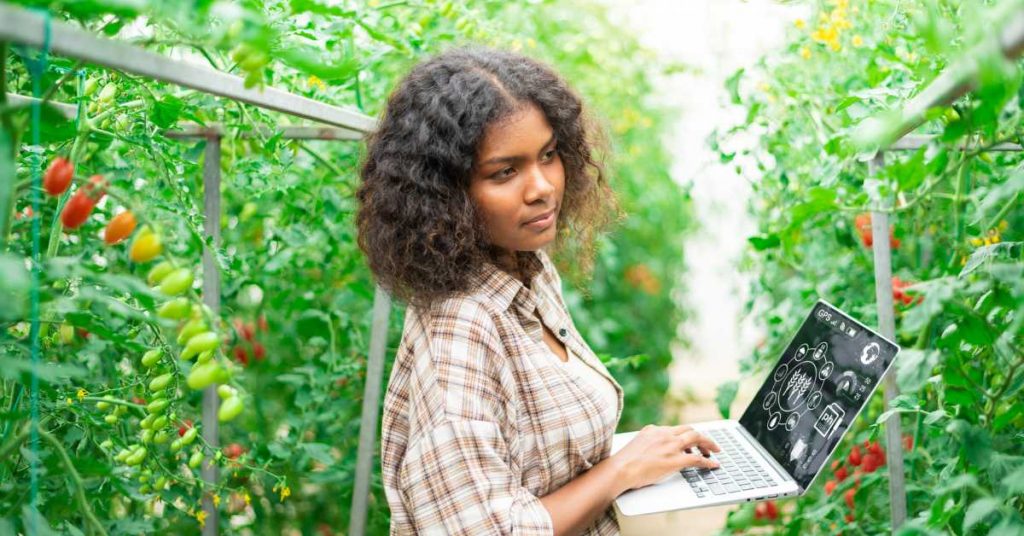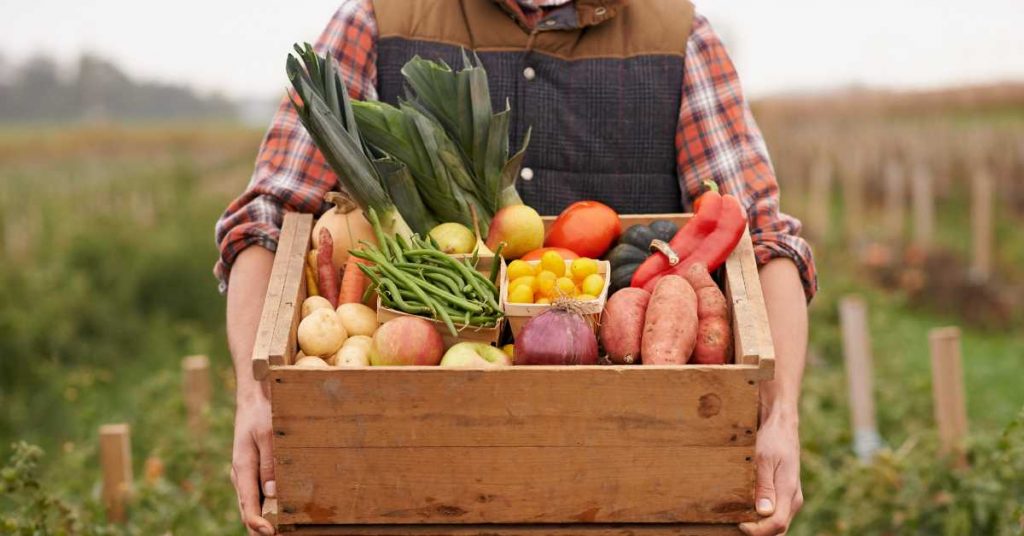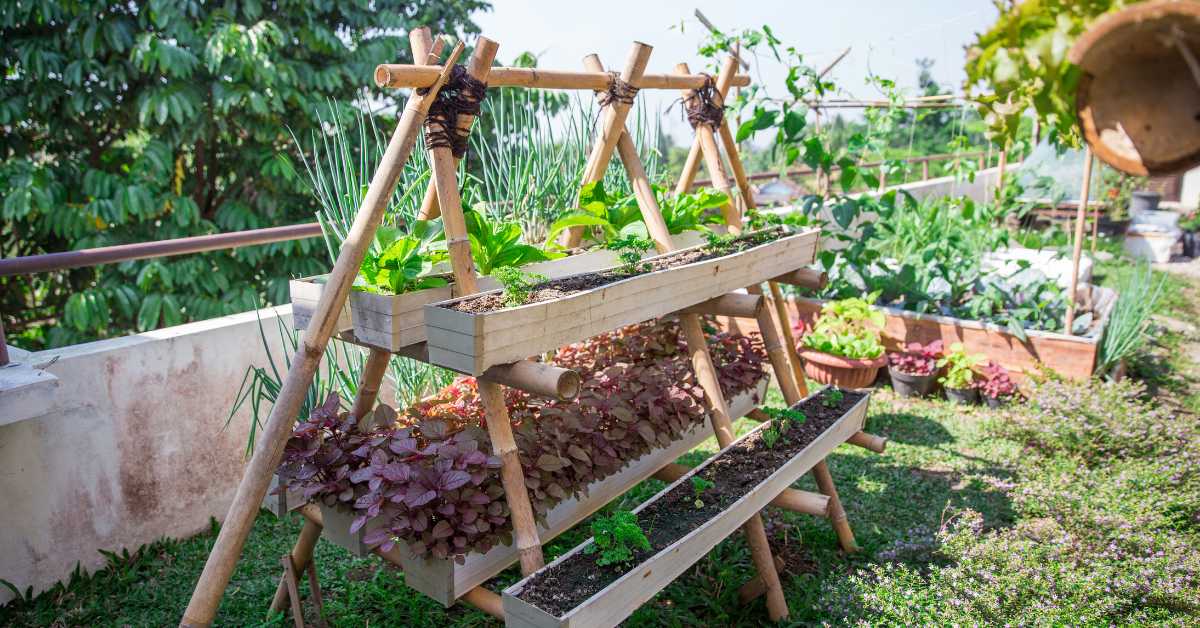Urban agriculture is undergoing a remarkable transformation thanks to the integration of Artificial Intelligence (AI) technologies. As cities grow and urban spaces become more constrained, AI offers innovative solutions to enhance agricultural productivity, sustainability, and efficiency within urban settings. This blog explores how AI is reshaping urban farming, from optimizing resource use to improving crop management and sustainability.
The Rise of Urban Agriculture
Urban agriculture is transforming cities across the globe, turning rooftops, vacant lots, and even indoor spaces into thriving farms. As urbanization accelerates, the need for sustainable food production within city environments becomes ever more critical. This movement is not only reshaping urban landscapes but also addressing food security, reducing environmental footprints, and fostering community engagement. At the heart of this revolution is the integration of Artificial Intelligence (AI), which is revolutionizing urban farming practices and making them more efficient, sustainable, and productive.
The Urban Agriculture Boom
Urban agriculture refers to the practice of cultivating, processing, and distributing food in or around urban areas. This can include rooftop gardens, community plots, vertical farms, and even hydroponic and aquaponic systems within buildings. Several factors contribute to the rise of urban agriculture:
- Population Growth and Urbanization: As cities grow, the demand for fresh, locally-sourced food increases. Urban farming helps meet this demand while reducing the need for long-distance transportation.
- Sustainability Goals: Urban agriculture supports sustainability by reducing carbon footprints, minimizing food waste, and utilizing renewable energy sources.
- Community and Economic Benefits: Urban farms can enhance community cohesion, create jobs, and provide educational opportunities.
AI-Powered Innovations in Urban Farming
Precision Agriculture
Precision agriculture uses AI to analyze data from various sources such as sensors, drones, and satellite imagery to optimize farming practices. In urban settings, precision farming techniques help maximize the use of limited space and resources. AI algorithms can predict the best planting times, irrigation schedules, and nutrient application rates, ensuring that crops receive optimal conditions for growth.
For instance, AI-driven soil sensors in urban gardens can monitor soil moisture and nutrient levels in real-time, providing precise recommendations for watering and fertilization. This reduces water usage and enhances crop yields.
Vertical Farming
Vertical farming involves growing crops in stacked layers or vertically inclined surfaces, often in controlled environments. AI plays a crucial role in managing these complex systems by automating lighting, temperature, humidity, and nutrient delivery.
AI-controlled LED lighting systems adjust light spectra and intensity based on the growth stage of plants, improving photosynthesis efficiency and accelerating growth cycles.
Automated Monitoring and Maintenance
AI-powered robots and drones are increasingly used for monitoring and maintaining urban farms. These technologies can identify plant health issues, pest infestations, and nutrient deficiencies early, allowing for timely interventions.
Drones equipped with multispectral cameras can capture detailed images of crop health. AI algorithms analyze these images to detect signs of disease or stress, enabling urban farmers to take precise corrective actions.
Smart Irrigation Systems
Water scarcity is a significant concern in urban agriculture. AI-driven smart irrigation systems use weather forecasts, soil moisture data, and plant water requirements to optimize irrigation schedules, reducing water waste and ensuring crops receive adequate hydration.
AI-based irrigation controllers can adapt watering schedules based on real-time weather data, preventing overwatering during rainy periods and conserving water during dry spells.
AI in Greenhouses
Greenhouses in urban settings benefit immensely from AI technologies that automate climate control, pest management, and crop monitoring. AI systems can maintain optimal growing conditions by adjusting ventilation, heating, and shading automatically.
AI systems in greenhouses can detect the presence of pests using computer vision and deploy targeted treatments, reducing the need for broad-spectrum pesticides and enhancing sustainability.
Benefits of AI in Urban Farming

Urban farming, the practice of cultivating, processing, and distributing food in or around urban areas, is rapidly evolving with the integration of Artificial Intelligence (AI) technologies. These innovations are crucial in addressing the unique challenges faced by urban agriculture, such as limited space, resource constraints, and the need for sustainable practices. AI’s role in urban farming encompasses a wide range of benefits, from enhanced productivity and cost efficiency to improved food security and environmental sustainability. This article delves into the comprehensive advantages of employing AI in urban farming.
Enhanced Productivity
One of the primary benefits of AI in urban farming is its potential to significantly boost productivity. AI technologies enable precision agriculture, which involves using data analytics, machine learning, and advanced sensors to optimize every aspect of crop production.
- Optimized Resource Use: AI systems can analyze data from soil sensors, weather forecasts, and crop health monitors to provide precise recommendations on irrigation, fertilization, and pest control. For instance, soil sensors can monitor moisture levels and nutrient content, ensuring that crops receive the optimal amount of water and nutrients. This not only improves crop yields but also conserves resources by preventing overuse.
- Increased Yield: By analyzing patterns and predicting outcomes, AI can help farmers make data-driven decisions that enhance crop yield. For example, AI algorithms can determine the best planting and harvesting times, leading to better crop management and higher productivity.
Sustainability
AI contributes significantly to the sustainability of urban farming practices. Sustainability in agriculture involves using resources efficiently, reducing waste, and minimizing environmental impact.
- Water Conservation: AI-driven smart irrigation systems use real-time data to optimize watering schedules, reducing water waste. These systems can adjust watering based on soil moisture levels, weather forecasts, and crop requirements, ensuring that plants receive just the right amount of water.
- Reduction of Chemical Use: AI technologies can detect early signs of pest infestations and diseases through computer vision and machine learning. This allows for targeted application of pesticides and herbicides, reducing the overall use of chemicals and minimizing environmental impact.
- Energy Efficiency: AI can optimize the use of energy in controlled environment agriculture (CEA) systems such as vertical farms and greenhouses. By automating lighting, heating, and cooling systems, AI ensures that energy is used efficiently, reducing the carbon footprint of urban farms.
Cost Efficiency
AI technologies help urban farmers reduce costs by automating various farming processes and improving operational efficiency.
- Labor Savings: Automation of tasks such as watering, monitoring, and pest control reduces the need for manual labor. AI-powered robots and drones can perform these tasks more efficiently than human workers, lowering labor costs and increasing overall efficiency.
- Resource Optimization: AI systems can optimize the use of inputs such as water, fertilizers, and pesticides. By ensuring that these resources are used precisely when and where needed, AI reduces waste and lowers input costs.
- Predictive Maintenance: AI can predict when equipment and infrastructure need maintenance, preventing costly breakdowns and downtime. This proactive approach to maintenance extends the lifespan of equipment and reduces repair costs.
Improved Food Security
Urban agriculture, powered by AI, plays a crucial role in enhancing food security by providing a reliable and sustainable source of fresh produce within urban areas.
- Local Production: AI-driven urban farms can produce a significant amount of fresh produce locally, reducing dependence on distant food sources and enhancing food security in cities. Locally grown food also has a lower carbon footprint due to reduced transportation needs.
- Year-Round Production: AI technologies enable controlled environment agriculture, which allows for year-round production of crops. By maintaining optimal growing conditions throughout the year, AI helps ensure a consistent supply of fresh produce, regardless of seasonal changes.
- Enhanced Crop Quality: AI systems can monitor and control various environmental factors, ensuring that crops are grown under optimal conditions. This results in higher-quality produce with better nutritional value and taste.
Precision Agriculture
Precision agriculture involves the use of AI to analyze data and make precise adjustments to farming practices. This approach leads to better crop management and higher efficiency.
- Data-Driven Decisions: AI systems collect and analyze vast amounts of data from various sources, providing farmers with actionable insights. This data-driven approach enables farmers to make informed decisions that optimize crop health and yield.
- Real-Time Monitoring: AI-powered sensors and cameras can continuously monitor crops, providing real-time data on growth, soil conditions, and pest activity. This allows farmers to respond quickly to any issues, ensuring that crops remain healthy and productive.
- Predictive Analytics: AI can predict future trends and potential problems based on historical data and current conditions. This predictive capability helps farmers plan and manage their operations more effectively, reducing risks and improving outcomes.
Climate Resilience
Climate change poses significant challenges to agriculture, particularly in urban areas where space and resources are limited. AI technologies can help urban farmers build resilience to climate-related risks.
- Adaptive Strategies: AI can analyze weather patterns and climate data to develop adaptive strategies for farming. For example, AI systems can recommend the best crop varieties to plant based on expected weather conditions, helping farmers mitigate the impact of climate change.
- Disaster Preparedness: AI can provide early warnings of extreme weather events, allowing farmers to take preventive measures to protect their crops. This proactive approach reduces the risk of crop loss due to climate-related disasters.
- Sustainable Practices: By promoting efficient use of resources and reducing environmental impact, AI helps urban farmers adopt sustainable practices that are resilient to climate change. This ensures that urban agriculture remains viable and productive in the face of changing climate conditions.
Enhanced Consumer Experience
AI technologies also enhance the consumer experience by improving the quality and availability of fresh produce.
- Traceability: AI can track the entire supply chain, providing consumers with information about the origin, production methods, and quality of their food. This transparency builds trust and allows consumers to make informed choices.
- Personalization: AI can analyze consumer preferences and trends to help farmers grow crops that meet market demand. This ensures that urban farms produce the right types of produce, improving customer satisfaction and reducing food waste.
- Freshness: AI-driven urban farms can deliver fresher produce to consumers by reducing the time between harvest and consumption. Locally grown food reaches consumers faster, maintaining its nutritional value and taste.
Challenges and Future Prospects
The integration of Artificial Intelligence (AI) in urban farming presents numerous advantages, yet it is not without its challenges. These hurdles need to be addressed to unlock the full potential of AI in transforming urban agriculture. Alongside these challenges, there are promising prospects that could redefine the future of urban farming.
High Initial Costs
One of the primary challenges in implementing AI in urban farming is the high initial cost. AI technologies, including sensors, drones, automated systems, and data analytics software, require significant investment. Small-scale urban farmers may find it difficult to afford these technologies, limiting widespread adoption.
- Equipment Costs: Advanced AI systems, such as precision farming tools, automated robots, and smart irrigation systems, are expensive. The initial investment can be prohibitive for small urban farms and startups.
- Maintenance Costs: Beyond the initial purchase, maintaining and updating AI systems can be costly. These systems require regular servicing, software updates, and occasional repairs, adding to the overall expenses.
Technical Expertise
The deployment and operation of AI technologies in urban farming demand a certain level of technical expertise. Many urban farmers may lack the necessary skills and knowledge to effectively utilize these advanced tools.
- Training Requirements: Farmers need training to understand how to use AI technologies, interpret data, and make informed decisions. This requires time and resources, which might not be readily available.
- Complexity: AI systems can be complex to operate. Farmers need to be familiar with software interfaces, data analysis, and troubleshooting techniques to maximize the benefits of AI.
Data Management
Effective use of AI in urban farming relies heavily on data. Collecting, managing, and analyzing vast amounts of data can be a significant challenge.
- Data Collection: Accurate data collection is crucial for AI systems to function effectively. Inconsistent or poor-quality data can lead to incorrect predictions and recommendations.
- Data Privacy: Managing data privacy is also a concern. Farmers must ensure that the data collected is stored securely and used ethically, which involves complying with data protection regulations.
Infrastructure Limitations
Urban environments pose unique challenges for farming, including limited space and infrastructure constraints.
- Space Constraints: Urban farms often operate in confined spaces. Installing AI systems like drones and automated robots may be challenging due to space limitations.
- Connectivity Issues: Reliable internet connectivity is essential for the real-time functioning of AI systems. However, not all urban areas have consistent and high-speed internet access, which can hinder the operation of AI technologies.
Regulatory Hurdles
The adoption of AI in urban farming is also subject to regulatory scrutiny. Various regulations govern the use of AI, data privacy, and agricultural practices.
- Compliance: Farmers need to navigate complex regulatory landscapes to ensure compliance. This can be particularly challenging for small urban farms that lack the resources to manage regulatory requirements.
- Policy Support: There is often a lack of clear policies and support frameworks for the integration of AI in urban farming. Policymakers need to develop guidelines that facilitate the adoption of AI while addressing ethical and safety concerns.
Future Prospects of AI in Urban Farming

Despite these challenges, the future prospects of AI in urban farming are promising. Advancements in technology and increasing awareness of sustainable practices are driving the adoption of AI in urban agriculture.
Improved Accessibility
As AI technologies continue to evolve, they are becoming more affordable and accessible.
- Cost Reduction: Advances in technology and increased competition are driving down the costs of AI systems. This makes it more feasible for small urban farms to invest in AI.
- User-Friendly Solutions: Developers are focusing on creating user-friendly AI solutions that require minimal technical expertise. This will enable more farmers to adopt and benefit from AI technologies.
Enhanced Sustainability
AI has the potential to significantly enhance the sustainability of urban farming.
- Resource Efficiency: AI systems optimize the use of resources such as water, energy, and fertilizers. This not only reduces costs but also minimizes environmental impact, promoting sustainable farming practices.
- Climate Resilience: AI can help urban farms adapt to climate change by predicting weather patterns and providing insights into climate-resilient crops and farming practices.
Increased Productivity
The use of AI in urban farming can lead to increased productivity and higher crop yields.
- Precision Agriculture: AI enables precision agriculture, which involves the accurate application of inputs based on real-time data. This leads to better crop management and higher yields.
- Automated Systems: Automated AI systems can perform repetitive tasks such as watering, monitoring, and harvesting, allowing farmers to focus on more strategic activities.
Enhanced Food Security
AI can play a crucial role in enhancing food security in urban areas.
- Local Production: AI-driven urban farms can produce a significant amount of fresh produce locally, reducing dependence on imported food and enhancing food security.
- Year-Round Production: Controlled environment agriculture (CEA) systems powered by AI allow for year-round production of crops, ensuring a consistent supply of fresh produce.
Innovation and Collaboration
The future of AI in urban farming is likely to be shaped by innovation and collaboration.
- Research and Development: Continued research and development in AI and agricultural technologies will lead to new innovations that further enhance the efficiency and productivity of urban farming.
- Collaborative Efforts: Collaboration between governments, technology companies, research institutions, and farmers will be crucial in driving the adoption of AI in urban farming. Shared knowledge and resources can help overcome challenges and promote best practices.
AI is playing a transformative role in urban agriculture, offering innovative solutions to enhance productivity, sustainability, and efficiency. As urban areas continue to grow, the adoption of AI technologies in urban farming will be crucial for ensuring food security and promoting sustainable agricultural practices. By embracing AI, urban farmers can optimize their operations, reduce resource waste, and contribute to a more resilient food system for the future.
Key Takeaways
- Urban Agriculture Transformation: AI is revolutionizing urban farming by enhancing agricultural productivity, sustainability, and efficiency within city environments.
- Rise of Urban Agriculture: The integration of AI in urban farming is reshaping urban landscapes, addressing food security, reducing environmental footprints, and fostering community engagement.
- Factors Driving Urban Agriculture:
- Population Growth and Urbanization: Increases demand for locally-sourced food.
- Sustainability Goals: Reduces carbon footprints and minimizes food waste.
- Community and Economic Benefits: Enhances community cohesion, creates jobs, and provides educational opportunities.
- AI-Powered Innovations:
- Precision Agriculture: Uses data from sensors and drones to optimize farming practices.
- Vertical Farming: Automates lighting, temperature, humidity, and nutrient delivery.
- Automated Monitoring: Robots and drones identify plant health issues and pest infestations early.
- Smart Irrigation Systems: Optimize irrigation schedules based on real-time data.
- AI in Greenhouses: Automates climate control and pest management.
- Benefits of AI in Urban Farming:
- Enhanced Productivity: Optimizes resource use and increases crop yields.
- Sustainability: Conserves water, reduces chemical use, and improves energy efficiency.
- Cost Efficiency: Reduces labor and resource costs, and enables predictive maintenance.
- Improved Food Security: Ensures a reliable and sustainable source of fresh produce locally.
- Precision Agriculture: Provides data-driven decisions, real-time monitoring, and predictive analytics.
- Climate Resilience: Develops adaptive strategies and disaster preparedness.
- Enhanced Consumer Experience: Improves traceability, personalization, and freshness of produce.
- Challenges and Future Prospects:
- High Initial Costs: AI technologies require significant investment.
- Technical Expertise: Farmers need training to effectively use AI tools.
- Data Management: Effective data collection and privacy management are crucial.
- Infrastructure Limitations: Urban environments pose unique space and connectivity challenges.
- Regulatory Hurdles: Compliance with regulations can be complex.
- Future Prospects:
- Improved Accessibility: AI technologies are becoming more affordable and user-friendly.
- Enhanced Sustainability: Optimizes resource efficiency and climate resilience.
- Increased Productivity: Precision agriculture and automated systems boost yields.
- Enhanced Food Security: AI-driven farms produce more fresh produce locally.
- Innovation and Collaboration: Continued research and collaborative efforts drive AI adoption in urban farming.
AI is playing a transformative role in urban agriculture, helping to ensure food security, promote sustainable practices, and create a resilient food system for the future.




